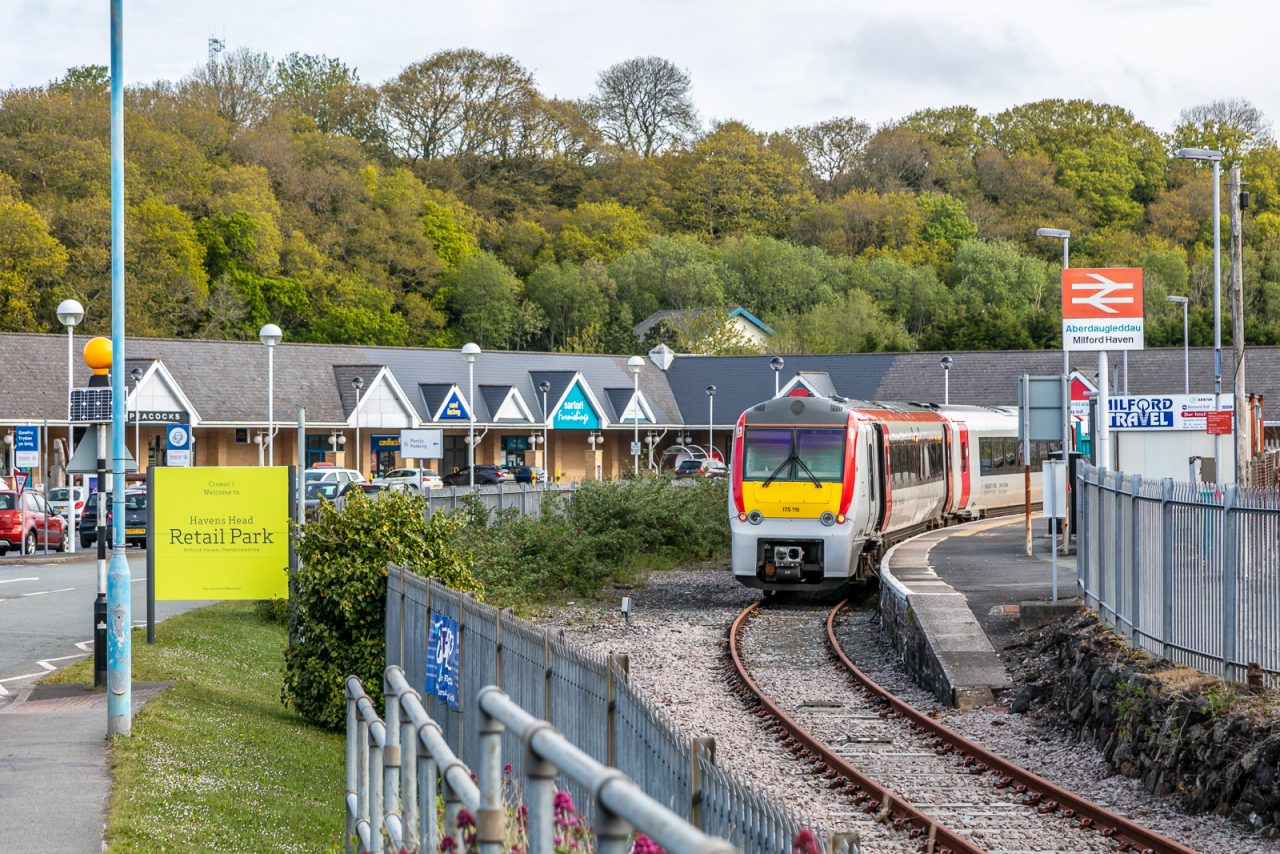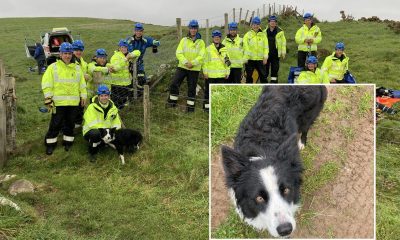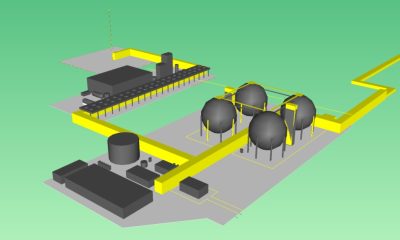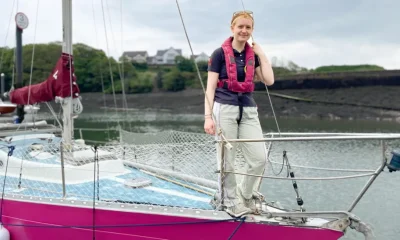News
Over a thousand west Wales trains cancelled in a year

MORE than a thousand trains, intended to transport passengers to Swansea and West Wales, have been cancelled within a single year. The distressing data highlights the ongoing struggles faced by Transport for Wales (TfW) since taking over the management of rail services from Arriva in 2018.
Passenger discontent has been a constant theme, with complaints about delays and cancellations echoing across the network. Despite assurances from TfW, the situation seems to be far from improving. Notably, a recent Rail User Survey disclosed that TfW had the lowest customer satisfaction among UK train operators, with a mere 72% of passengers satisfied with the service between March and August this year.
The chief operating officer of TfW, Jan Chaudhry-Van der Velde, attributed the challenges to a comprehensive railway transformation program, acknowledging the inconvenience caused to passengers during the ongoing modernisation efforts. He commented, “As we modernise and enhance infrastructure and rolling stock, it’s undoubtedly been a painful period for our passengers with many rail replacement bus services in operation.”

One of TfW’s pledges from 2018, promising “95% of rail journeys in Wales and its borders will be on new trains from 2023,” has not materialised. The impact of the pandemic is cited as a significant factor delaying the introduction of new trains. Mr. Chaudhry-Van der Velde reassured the public that new trains are finally arriving and will continue to replace older ones throughout 2024.
However, recent revelations in October have indicated that less than a third of TfW services are currently being operated with new trains. This has prompted criticism from Plaid Cymru’s transport spokeswoman, Delyth Jewell MS, who expressed disappointment in the state of rail travel in Wales. She remarked, “Too much of the rail network in Wales can still be summarised by its old trains, late trains, and huge levels of customer dissatisfaction.”
Particular concern is directed towards services to West Wales, where passengers consistently report issues. A firsthand account of a 60-mile journey from Cardiff to Carmarthen revealed multiple delays and disruptions. Similar experiences are shared by other passengers, with one stating, “Getting there is always a bit pot luck but coming home is a nightmare – every time.”
A Freedom of Information request to TfW regarding the money spent on replacement buses and taxis over a 12-month period was met with refusal, citing excessive compliance costs. However, a separate request unveiled that a staggering 1,054 services to Swansea and further west were cancelled between August 1, 2022, and August 1, 2023.
Delyth Jewell MS expressed concern over the high number of cancellations, noting that, on average, almost three trains were cancelled daily on this route alone. She emphasised the impact on passengers, stating, “People will have been stranded or been left needing to take alternative transport – and that’s particularly worrying at this time of year when it gets dark so much earlier.”
As Wales grapples with the challenges of its rail network, the public’s patience wears thin, raising questions about the efficacy of the ongoing transformation program and the ability of TfW to deliver on its promises.
Charity
St Davids RNLI teams up with Solva Rowing for joint exercise

THE RNLI St Davids lifeboat crew joined forces with Solva Rowing and Watersports Club for a unique joint training exercise on Saturday, May 11, 2024. The session focused on practising medical evacuation and tow techniques using a Celtic longboat, providing an opportunity for both lifeboat and rowing crews to enhance their rescue skills.
The training aimed to prepare volunteers for a variety of maritime emergency scenarios, ensuring that they are well-equipped to handle situations that may arise at sea. The use of the traditional Celtic longboat added an extra layer of challenge and realism to the exercise, simulating conditions that could occur during actual rescue operations.

The collaboration between the two groups was not only a chance for skill enhancement but also a way to strengthen community ties and mutual understanding among the local sea-going organisations. The exercise was documented in photographs by Lyn Jenkins and Cathy Morton, capturing the intense yet constructive nature of the training.
This proactive approach by both the RNLI and Solva Rowing and Watersports Club underscores the commitment of local maritime groups to safety and preparedness, ultimately aiming to ensure that their volunteers are ready and able to save lives at sea effectively.
Charity
Angle RNLI responds to four emergencies in two days

THE Angle RNLI lifeboat crew demonstrated remarkable dedication and skill in managing four separate emergency callouts over the span of just two days. The series of incidents began at midnight on Friday, 10th of May, when the all-weather lifeboat was launched to investigate reports of red flares over Pennar, Pembroke. Despite an extensive search of the area stretching from the 5A buoy east of Valero to Llanreath and into Pennar Gut, no evidence of distress was discovered and the team was stood down at approximately 1:45am.
The second incident occurred later the same day at 4:58pm, following a mayday call from a vessel between South Hook and Angle. The vessel’s skipper reported an unconscious crew member who had collapsed while fishing. The lifeboat reached the distressed vessel within minutes, where crew members provided immediate medical assistance. The casualty, now conscious and stable, was transported to the Port Authority Jetty, where further medical support awaited.
The crew’s third emergency call of the day came at 7:19pm, prompted by a 999 call reporting four individuals being swept out to sea on two surfboards at Freshwater West Beach. Fortunately, all four were safely out of the water by the time the lifeboat arrived, but the crew conducted a precautionary search to ensure no further individuals were at risk.
On Saturday, 11th of May, at 1:03pm, the crew was again called into action after a report of a person unable to reboard their boat south of Watwick Beach. The individual, who had been recovered from the water by a passing vessel, was safely transferred to the lifeboat. It was found that the casualty’s mirror dinghy had capsized. The lifeboat ferried the individual to the Port Authority Jetty for medical care.
Each of these operations underscores the critical role played by the RNLI and its volunteers in ensuring maritime safety and rapid response to emergencies along the coast.
News
Cyclist dies during annual charity ride to Tenby

A TRAGIC incident occurred during the annual CARTEN100 charity bike ride when a 51-year-old cyclist died of a suspected cardiac arrest. The event, which took place on Saturday, saw Michael Gronow collapse shortly after passing through Johnstown in Carmarthenshire during the 100-mile journey from Cardiff to Tenby.
Despite the swift response of emergency services, Mr. Gronow could not be revived.
Organisers of the event, which attracts over 1,800 participants and marks its 20th anniversary this year, expressed their sorrow and extended their condolences to Mr. Gronow’s family.
Starting from Cardiff City Hall and ending at Tenby Harbour, the CARTEN 100 is a challenging endurance event that spans approximately 10 hours, drawing cyclists from across the region to raise money for various charities.
-

 Community4 days ago
Community4 days agoTragic passing Josh, 28, mourned by Milford Haven community
-

 Community4 days ago
Community4 days agoLucy’s sudden passing at just 38 leaves a community in mourning
-

 Community6 days ago
Community6 days agoJoy as Willow rescued by coastguard after 12-day ordeal
-

 News24 hours ago
News24 hours agoAurora Alert: Another chance to see the Northern Lights tonight
-

 Crime4 days ago
Crime4 days agoDrunk digger driver remanded for hurling racial abuse at neighbours
-

 Business7 days ago
Business7 days agoDragon LNG explores integration of LNG and CO2 liquefaction processes
-

 Crime5 days ago
Crime5 days agoFarm mechanic admits drink driving after losing control of vehicle
-

 News1 day ago
News1 day agoRenewed social media appeal over Sian Batchelor’s death























